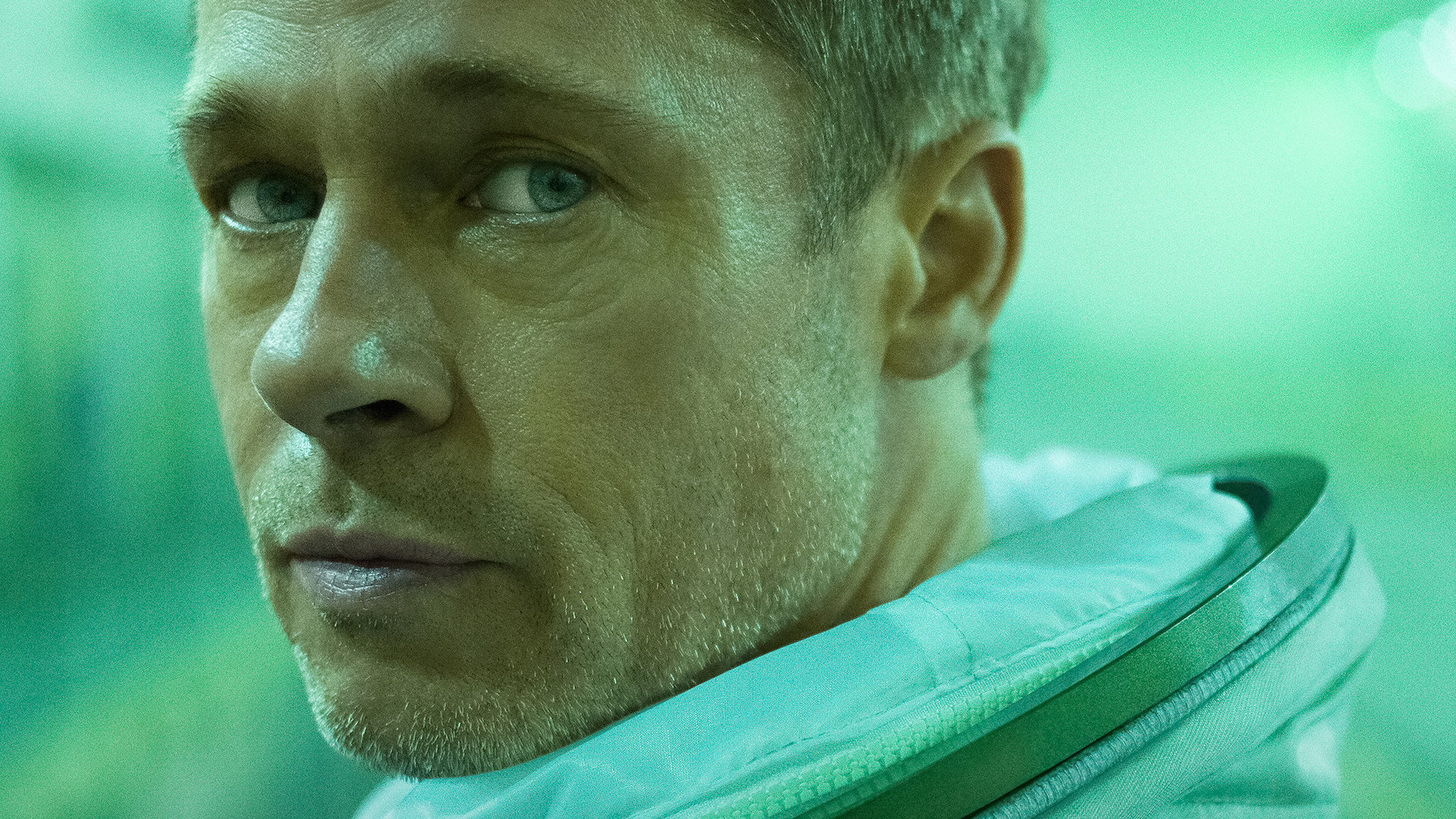
The effects are seamless. The acting is introspective. The emotional undercurrent aims for supremacy. It’s an operatic space venture that defiantly refuses to adhere to cohesiveness on a narrative level. And it’s because Ad Astra flirts with moments of greatness only to stubbornly stifle them that James Gray‘s ambitious drama will prove to be one man’s wonder to another’s waste.
Set in “the near future”, Ad Astra‘s sole focus is on Major Roy McBride (Brad Pitt), an astronaut who’s called upon to assist a mission to Neptune. Informed that his long-lost i.e. presumed deceased father, Cliff (Tommy Lee Jones), may be alive after three decades of radio silence, a series of energy pulses that have currently plagued the Earth’s surface are believed to be linked to his re-emergence.
Alongside seasoned astronaut Colonel Pruitt (Donald Sutherland, the first of many big name co-stars reduced to little more than glorified cameo status), Roy charters a commercial flight to the moon (the Ethan Gross-assisted script has some momentary fun presenting this outer-space destination as one overrun by commercialism) before furthering on his venture to Mars, all the while internally battling whether or not his father is someone he truly wants to face; to say Roy has some daddy issues would be putting it lightly.
Taking the ironic claustrophobia that comes with being stranded alone in the depths of space in a manner similar to the more audience-friendly Gravity and fusing it with the mentality of something akin to Apocalypse Now, Ad Astra aims for bold intelligence with its core father-son relationship but sadly never materialises it beyond a surface level where it would seem resentment is the key emotion. Pitt’s performance hinges more on internalisation and a whispery voice-over rather than the kinetic charisma he usually evokes, and he isn’t helped by a script that refuses to delve beyond the character’s loss in the most general sense; both his father and his wife (Liv Tyler, barely registering) key figures in his life that represent abandonment.
Thanks to cinematographer Hoyte van Hoytema (Interstellar, Dunkirk) and composer Max Richter (Arrival, Mary Queen of Scots) the film looks beautiful and sounds spectacular and, as utterly unimportant as they are to the narrative, a series of sequences involving pirates aboard moon buggies and a rather horrific encounter with a rogue animal subject gives the film a momentary thrill. But Gray’s clearly aiming for something more cerebral, and the father-son bond between Pitt and Jones is disappointingly underwhelming that any emotional resonance it hoped to achieve is suffocated.
![]()
![]()
![]()
![]()
![]()
TWO AND A HALF STARS (OUT OF FIVE)
Ad Astra is screening in Australian theatres now.
